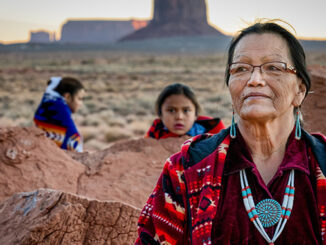The Indian Child Welfare Act, a federal law outlining adoption and foster care regulations for American Indian/Alaska Native children in the United States, turns 41 on Nov. 8, 2019.
ICWA, as the law is commonly known, has faced dozens of legal challenges over its lifetime and finds supporters and opponents both within and outside Native communities. Like all Indian law, ICWA is complicated; according to its authors, this is largely due to the complex political relationship between the United States government and sovereign tribes. ICWA also reflects the complexity often found in family dynamics and the twisting narratives that accompany any report of child abuse or neglect.
Though ICWA did not become law until the late 1970s when it was passed by the 95th Congress and signed by President Jimmy Carter, its spirit was born in the 1960s when the Association on American Indian Affairs began tracking the number of Native children who were being forcibly removed from their families and tribes.
(Read more about the origin of law here, in “The Nation’s First Family Separation Policy.”)
ICWA may once again find congressional support if the Cherokee Nation is successful in its bid to add a tribal delegate to the U.S. House of Representatives for the first time in history.
If the Cherokee Nation delegate is named, the timing of that individual’s ascent to the capitol could be critical. One of the most recent lawsuits, Brackeen v. Zinke, which challenges the constitutionality of the law, was reopened just this week when the Fifth Circuit Court agreed to rehear the case, despite having ruled in August to uphold the law.
What to Read
Find all of our ICWA-related coverage here.Follow our coverage of Brackeen v. Zinke, one of the biggest legal challenges ICWA has faced in its history. Read about the first federal ruling against the law here, and the Fifth Circuit Court’s decision to uphold the law here.
Read about the Memorial March to Honor Lost Children – one of the only annual events in the nation that pays tribute to the loss of Native children to foster care, adoption and boarding schools. Learn about the march’s founder and longtime Indian rights activist Frank LaMere here.
***
Editor note: As it was 100+ years ago, as it is today: those who seek to take children away from their tribal relatives, we will fight them. This ICWA law is to serve tribal nations after attempted genocide. We will not go back. Aho! Trace







No comments:
Post a Comment
Please leave a comment.